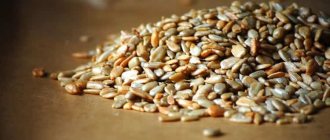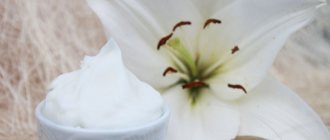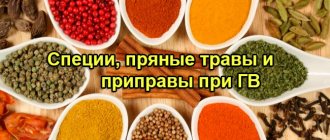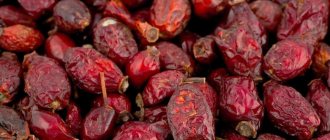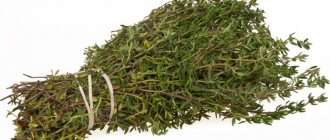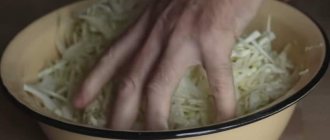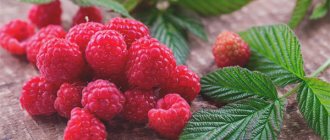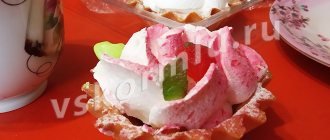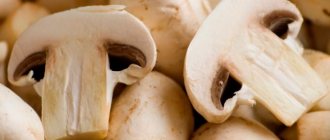Breast milk is the best nutrition option for a newborn baby. But a nursing mother needs to be careful when choosing food for herself.
This does not mean that women with infants should eat exclusively boiled breast and biscuits in order to eliminate the possibility of allergies and other problems in the baby.
Luckily, there are many delicious and healthy food options for breastfeeding moms. In this article we will talk about kozinaki as a food product for a nursing mother, what are their benefits and what harm can they do.
Composition, calories and vitamins
The dessert does not contain flour, artificial elements, sugar, or animal fats. Kozinaki has a sweet taste and high nutritional value. Previously, the delicacy was prepared from walnuts, but now peanuts, sesame seeds, oatmeal, rice, and prunes are used in production.
Kozinaki is filled with vitamins A, E, PP, K, group B, minerals: magnesium, iron, zinc, calcium, potassium, phosphorus. There are also fats, easily digestible proteins, and carbohydrates. The average calorie content is 500 kcal per 100 g.
The chemical composition is determined by the type of base ingredient:
- sunflower seeds are considered a source of monounsaturated acids, calciferol, retinol, vegetable protein, zinc, magnesium, calcium;
- sesame contains niacin, sesamin, vitamins E, group B;
- nuts are saturated with vegetable fats, fiber, amino acids;
- peanuts contain antioxidant elements, globulins;
- hazelnuts strengthen memory and make brain activity more productive;
- raisins and dried fruits are filled with copper, magnesium, retinol, potassium.
Is it possible for a nursing mother to have sesame kozinak? Oriental sweetness is allowed during breastfeeding, but it is introduced from 2-3 months after birth. Sweets enhance lactation, improve the composition of milk, and prevent mastopathy. Sesame kozinaki during breastfeeding has a mild laxative effect: the intestines are cleansed and toxins are eliminated.
Possible harm
Sometimes natural ingredients can have undesirable effects, especially when it comes to babies. Therefore, it is worth considering the question of whether a nursing mother can eat kozinaki from the other side.
What possible danger does this delicacy pose?
- Allergy. Honey is a serious allergen and even if the mother’s body accepts this product, the child may react to it differently. The same applies to nuts, so it is recommended to introduce nut treats later.
- Digestive problems. A baby’s fragile digestive system may not be able to cope with a heavy product.
Possible harm to the mother:
- Negative effects of solid products on tooth enamel. After childbirth, women may experience problems in their body, often affecting their teeth, hair and nails.
- The risk of gaining excess weight due to the calorie content of the treat.
Everything is new to a baby in the diet of a nursing mother, so the main thing is to take into account all the higher rules to prevent negative reactions from the baby. If there is an individual intolerance to a component, the mother should exclude the dish from the diet.
Benefit
Properties are determined by the main component:
| Base ingredient | Effect on the body |
| Sunflower seeds | They regulate cholesterol and blood pressure, preventing heart attacks and strokes, make the skin healthy, normalize the functioning of the female reproductive system, and stimulate the body's natural defenses. |
| Sesame | Strengthens bones, teeth, relieves nervous tension, has a mild laxative effect, normalizes digestive activity and metabolic processes. |
| Nuts | They increase the body's resistance to stress, clean blood vessels, activate the intestines, and remove toxins. |
| Peanut | Helps brain activity, prevents the aging process, stimulates the immune system. |
| Chocolate | Eliminates depression, improves mood, energizes. |
| Raisins and dried fruits | They heal the intestines, have an antimicrobial effect, activate brain function, support the heart and blood vessels. |
| Honey | Renews the body, improves joint mobility, relaxes smooth muscles, treats colds. |
Is it allowed to give to children?
Kozinaki should not be given to an infant.
Doctors recommend including this product in the diet starting from the age of three. This is due to the high calorie content of the ingredients - seeds and nuts.
A child's body is not able to process such heavy food , so it is better to postpone introducing this product to a later time.
Benefits for the baby
The beneficial substances that a nursing mother receives immediately pass into breast milk. So from kozinaki your baby can get:
- Fiber to improve digestion, prevent constipation, colic and bloating.
- Extra calories to feel full and actively gain weight.
- The additional tone that the baby’s body receives, thanks to the anthelmintic property of walnuts, his muscles develop.
- The vitamins contained in kozinaki are an excellent prevention of infectious diseases.
- Vitamin B9 is necessary for the growth and development of a newborn, as it is directly involved in the formation of new cells.
- Calcium , which is contained in sesame seeds, is indispensable in the development of newborn bones.
- Vitamin PP (niacin, or nicotinic acid) takes part in protein metabolism, ensures the conversion of sugar and fats into energy, regulates cholesterol levels, cleanses blood vessels, and reduces the concentration in the blood of harmful substances that can cause diseases of the cardiovascular system.
- Vitamin B4 is indispensable for the development and stimulation of brain activity.
Harm and contraindications for breastfeeding
With diabetes, gastrointestinal problems and obesity, eating kozinaki from seeds is dangerous for a nursing mother. Overeating sweets causes severe allergies.
The product causes the following disorders:
- dessert produced in industrial conditions is harmful due to the presence of chemicals, flavors, and preservatives;
- sweets cause a sharp jump in glucose, therefore they are contraindicated in patients with diabetes;
- peanuts, sugar, honey activate an allergic reaction;
- sweets destroy tooth enamel, contributing to the development of caries;
- dishes made from seeds are harmful to women with pancreatitis;
- A nursing mother should not eat kozinaki during exacerbation of gastritis due to hard ingredients that irritate the gastric mucosa.
Sweets are prohibited for overweight women; they are not consumed for intestinal problems (diarrhea, flatulence) because of their ability to relax the stool.
How can the product be dangerous?
- Peanuts and honey are foods that can cause an allergic reaction in infants. Therefore, mothers should be extremely careful with these components and constantly monitor the child’s reaction.
- Hard sweets can damage the tooth enamel of a nursing woman, whose teeth can already deteriorate during pregnancy and lactation.
- Kozinaki contains nuts and seeds, so this delicacy is a very high-calorie product. So overweight women should consume it in limited quantities or avoid it altogether.
- In kozinaki there may be nut shells, which will not bring any benefit, but on the contrary, can harm the mother. Therefore, we advise you to choose a high-quality product in which the occurrence of shells is minimized.
Important! It must be remembered that each child is individual and allergies can occur to completely different ingredients of sweets. So try products with different compositions, this is the only way you can choose healthy and harmless kozinaki.
How to select and store
Kozinaki first appeared in Georgia, where the original traditions of preparing the dish still exist. Dessert produced in industrial conditions is not always of high quality, so when purchasing, carefully read the information on the packaging. The composition should not contain chemical additives or dyes. The highest quality product is considered to be one made with honey rather than sugar syrup.
When choosing kozinaki for a nursing mother, they look at the color and smell. A dark brown tint indicates the presence of sugar syrup. A quality product has the aroma of honey, nuts, and dry fruits. You should not buy dessert with the addition of artificial substances; such sweetness will not bring benefits to the body.
When purchasing, choose the usual composition. During lactation, do not experiment with unfamiliar ingredients. The presence of strong allergens (honey, peanuts, chocolate) is excluded. Pay attention to the composition of the glaze and added spices. Avoid chemicals, dyes, preservatives, and unnatural additives.
A product packaged in transparent packaging is preferable. It is easy to see mold, stains, and remnants of seed skins. It is important to check the expiration date.
After purchasing, kozinaki is placed in a plastic container with a lid or wrapped in cling film and stored for up to six months. To prevent the pieces from sticking together, place sheets of parchment between them.
Can breastfeeding women eat sesame seeds?
Sesame is a healthy product for both a nursing mother and her newborn baby. Based on the fact that sesame seeds are very small, they are most often used as an additive to other foods, for example, in salads. This product is not only not prohibited during pregnancy and breastfeeding, but is also necessary. Let's figure out what is so healthy about sesame seeds, and how much of them can be consumed by a nursing woman.
We can safely say that sesame seeds are not only useful for a young mother and baby, but also necessary, because they contain a huge amount of vitamins and microelements that restore the body’s strength and provide good immunity. Let us immediately pay attention to such a substance in the composition of sesame seeds as niacin. You can write more than one article about this vitamin, but all because niacin plays a vital role in our body:
- This substance contributes to the normal functioning of the digestive system and takes part in the process of breaking down food into fats, proteins and carbohydrates.
- Niacin significantly lowers cholesterol levels in the blood, is able to dilate blood vessels and normalize blood circulation.
- Niacin also improves the condition of the skin, making it firm and elastic.
- The vitamin has a positive effect on the nervous system of the body and acts as a mild sedative.
Sesame seeds for pregnant women
As you can see, the presence of even this vitamin in sesame already makes the seeds extremely useful and necessary not only for an adult body, but also for a newborn.
- Calcium, which is also present in the seeds, helps restore the health of bones, nails and hair.
- Copper has a beneficial effect on the nervous system and improves the general condition of the body.
- Sesame seeds also contain sufficient amounts of zinc, phosphorus, potassium, iron and manganese for the human body.
- The presence of vitamins A, B, C, D and PP in sesame is also good news. Vitamin A helps improve visual function and skin. Vitamin B is responsible for healthy skin, hair, and nervous system. Vitamin C is known for improving human immunity. Our body needs vitamin D for the normal absorption of phosphorus and calcium. And vitamin PP is responsible for the proper functioning of the heart and blood vessels.
- The oil that is released from sesame seeds has a beneficial effect on the hormonal background of a young mother and strengthens her nervous system, as well as the nervous system of the baby.
So, the question of whether a woman who is breastfeeding can eat sesame seeds is probably settled. Not only is it not prohibited to use sesame while breastfeeding, it is even recommended to use it. And now some tips on how best to introduce this product into your diet:
- You need to start eating seeds in very small quantities. Initially, limit yourself to half a teaspoon. Eat the seeds in the morning so that during the day you have the opportunity to observe the reaction of both your body and the child’s body.
- Include foods consistently in your diet. There is no need to experiment and try to eat several new types of food at once. The baby's body can react extremely negatively.
- If after the first use of sesame the child’s reaction is normal, nothing bothers him, and there are no changes, then you can safely continue to eat this product.
- Eat sesame seeds in the same amount approximately once every 2 days. After 2-3 weeks, you can start eating seeds every day in the same amount or increase it to 1 tsp.
- When eating seeds, take your time to swallow them. Remember, all the beneficial substances are in the seed, so chew the product thoroughly.
It is important that you understand that a baby can have an allergic reaction even to such a useful product. Therefore, carefully monitor your child’s well-being after you start consuming sesame seeds and in case of any negative changes in the newborn’s behavior, immediately stop taking the product.
Rules for use during lactation
Introduction to diet
Kozinaki is not eaten immediately after birth, as it is difficult to digest, and the baby’s gastrointestinal system needs time to adapt to the mother’s menu.
When breastfeeding a newborn, Kozinaki is introduced into food from the second month, and in the presence of ingredients that cause allergies - from the third. First, eat a small piece in the first half of the day and monitor the baby’s reaction. If there are no negative symptoms: rash, colic and anxiety, the portion is increased.
Daily norm
It is recommended that a nursing mother eat kozinaki in the amount of 80 g per day, per week - no more than 200 g. The sweetness is divided into several servings and washed down with tea. It is not recommended to exceed these numbers due to the risk of digestive disorders and colic in the baby.
What to replace
If for some reason a nursing mother cannot eat kozinak, then instead they eat marshmallows, halva, marmalade, and marshmallows. The main thing is that the products do not contain components hazardous to health, artificial colors, chemical flavors, or preservatives. It is recommended to prepare sweets yourself from natural ingredients.
When can a nursing mother eat kozinaki?
In the first month after giving birth, you shouldn’t get too carried away with kozinaki - after all, this delicacy is quite difficult to digest, and the baby needs time to adapt to the mother’s diet, and therefore in the first weeks after the birth of the child it is better to adhere to a special diet.
But starting from the second month, you can gradually introduce sunflower seed products into your menu. It's best to eat a small amount of the treat first and observe your newborn's reaction. If he does not develop any unusual symptoms - itching, digestive disorders or skin rashes, then you can safely increase the amount of serving.
Usually, kozinaki does not cause problems for nursing women and their babies. You can eat such a healthy product every day, but only a little - it is important to observe moderation in everything.
Recipes
They use seeds, nuts, honey, prunes, and rice. The main advantage of homemade dessert is the absence of questionable additives.
From sunflower seeds
Kozinak prepared according to this recipe does not contain sugar at all, and therefore is very healthy. It contains only two ingredients - seeds and banana. But the dessert turns out surprisingly sweet, has the color and taste of chocolate. Take 250 g of peeled seeds, 200 g of bananas. The fruit pulp is cut into pieces. Beat with a blender until smooth. Add unroasted seeds to the puree and mix.
Cover the baking sheet with foil and lightly grease it with oil. Add the mixture and level it out. Use a spoon to make indentations to make it easier to divide into pieces later. Bake at 130 C for 2 hours. The finished dish turns brown.
From sesame
Kozinak made from sesame seeds is most useful for nursing mothers: it is easily digestible without causing extra pounds.
Ingredients:
- sesame - 200 g;
- sugar - 200 g;
- honey - 1 tbsp. l.;
- water - 2-3 tbsp. l.
The seeds are lightly fried in a frying pan without oil. As soon as a golden color appears, remove from heat. Mix sugar and water in a separate saucepan, place on the stove and cook over low heat. The result will be a viscous, golden-colored syrup. The mixture is cooled, honey is added. Add sesame seeds and stir quickly. Next, transfer to a baking sheet covered with parchment, level, cover with paper on top, and pass with a rolling pin. As soon as the mass hardens, the dessert is cut into pieces.
From walnuts
For cooking, it is important to choose the right nuts; they must be fresh and light in color.
Ingredients:
- walnuts - 1 kg;
- honey - half a liter;
- powdered sugar - 2 tbsp. l.
The nuts are peeled, crushed in a blender or with a knife (the second option is preferable - this makes the dish tastier) to small pieces. Fry in a frying pan without oil for 10-12 minutes. In a separate container, mix honey with powdered sugar. The resulting mass is heated on the stove, but not boiled. Remove from heat and stir. This is repeated three times. For the fourth time, place the saucepan on the stove, add nuts, and stir. Remove from heat, spread the mixture onto a cutting board moistened with water, form a layer 1 cm thick. Cut the kozinak into pieces.
With honey
The recipe is used if there is no allergy to bee products.
Ingredients:
- sunflower seeds - 200 g;
- sugar - 4 tbsp. l.;
- honey - 1 tbsp. l.;
- vegetable oil - 1 tbsp. l.
The seeds are roasted in a frying pan until golden brown. Sugar is poured into a saucepan and honey is poured. Heat, stirring, until a viscous consistency. Pour the seeds into the resulting caramel. Mix vigorously, place on a sheet of parchment greased with vegetable oil, and press down. Cut the layer into pieces. Leave to harden for 20 minutes.
Kozinaki is recommended for nursing mothers due to the presence of beneficial substances in the product that activate memory, lower cholesterol levels, increase immunity, and relieve postpartum stress. You can't overuse sweets. Eating kozinaki during breastfeeding should be done in moderation, then they will not cause allergies in the baby and will help with proper growth and weight gain. During lactation, sesame seeds are preferred as the most healthy and safe product.
If you find an error, please select a piece of text and press Ctrl+Enter.
Can breastfeeding women eat raw and roasted pumpkin seeds?
Pumpkin seeds are in no way inferior to the favorite sunflower seeds. They are also very useful for our body and contribute to the rapid recovery of a woman after childbirth.
- Pumpkin seeds are rich in protein, oils and carbohydrates. This product also contains a huge amount of other equally useful microelements and vitamins.
- The huge amount of zinc contained in this delicacy contributes to the normal development of the baby’s body.
- Despite their calorie content, seeds do not disrupt the functioning of the gastrointestinal tract and liver, of course, if we are talking about their moderate consumption.
- Pumpkin seeds are the least allergenic. This fact is important when choosing seeds during breastfeeding.
- It is also worth mentioning that this delicacy helps reduce cholesterol levels in human blood and also normalizes blood pressure.
- By regularly consuming this product, our bones become stronger and stronger.
- The vitamins contained in the seeds significantly improve human immunity. The body, receiving the required amount of nutrients it needs, becomes less susceptible to various kinds of diseases.
- Pumpkin seeds have antiviral properties. Thanks to some substances that they contain, fungal and viral infections are eliminated much faster and more effectively.
- Few people know, but this delicacy is an excellent remedy for fighting worms. Don't be surprised, this is true. The seeds contain a substance called cucurbitin. This substance can destroy worms, which is why it is recommended to eat this delicacy from time to time.
Pumpkin seeds during pregnancy
- Pumpkin seeds perfectly strengthen the cardiovascular system. Magnesium and potassium have a beneficial effect on the functioning of the heart and blood vessels, and this in turn reduces the risk of heart attacks, strokes and other diseases of this system.
- Fiber, which is more than abundant in seeds, normalizes the functioning of the stomach.
- Pumpkin seeds help to escape from toxicosis and nausea during motion sickness in transport. So the benefits of this product are noticeable not only after childbirth, but also during pregnancy.
- Now let's talk about the form in which new mothers can eat pumpkin seeds. You should definitely avoid eating them fried. After heat treatment, almost all beneficial substances disappear. Therefore, it is best to eat slightly dried white seeds.
- Remember that excessive consumption of this product can cause stomach upset and this affects not only you, but also your baby. You should also refrain from eating seeds if you suffer from gastritis, peptic ulcers and obvious excess weight.
- Doctors say that if the expectant mother ate seeds during pregnancy, then the baby’s body after birth will be accustomed to such a delicacy and, accordingly, the seeds should not harm him. But there are always exceptions, so monitor your baby’s reaction after you use the product.
- Experts do not prohibit the inclusion of pumpkin seeds in the diet of a nursing mother, because the benefits from them are truly enormous. However, it is recommended to eat this product at least a month after giving birth.
What do the experts think?
To the question “Can a woman eat kozinaki while breastfeeding?”, experts answer unequivocally: “Yes!” They allow Eastern sweets in limited quantities and with gradual introduction into the diet in order to reduce the risk of developing allergies in infants.
Mother's milk carries the vitamins and minerals necessary for the baby's growth and development. Experts advise eating treats in small quantities after childbirth if they were included in the pregnant woman’s menu and are somewhat familiar to the baby. You should also make sure that the mother's body accepts the ingredients in the product well.
An important role is given to the quality of kozinaki and the implementation of basic recommendations for their use.
